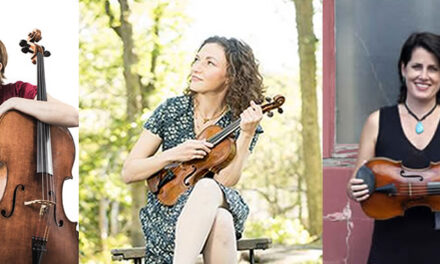Premiering February 14, 1895, Oscar Wilde’s The Importance of Being Earnest is nearing its 120th anniversary. The fateful year of the play’s release also happened to be the year Wilde was tried and convicted for “gross indecency,” after which he would serve two years in a hard labor camp for his “crime” of loving another man. Wilde never wrote another play after that, and he’d be dead five years after the premiere of Importance, making it his penultimate work. While perhaps the social commentary is not as blatant as with The Picture of Dorian Gray, Importance should be remembered as a subversive piece of literature in its own right. Peace University’s production of Wilde’s The Importance of Being Earnest, directed by Amy White, however, goes for a lighter approach. A bodiless announcement at the beginning of the play tells us (warns us?) that we’ll be enjoying a “pleasant little production.” And with fine costumes and performances, it is indeed pleasant, and very funny, but it leaves the subversive commentary at the dinner table.
I’ve always viewed Importance as the sort of more presentable partner to Dorian Gray, the one you bring home to mom. While they both carry themes of duality and social commentary on gilded Victorian ideals, Importance’s main aim appears to be only to make us laugh. There are some progressive themes, though, just under the surface.
The play focuses on the dual lives of Algernon Moncrieff (DJ Curtis) and Jack Worthing (Alex Reynolds), who both have created imaginary characters so that they might lead secret lives. Jack professes that he’s “Ernest in town and Jack in the country,” essentially creating a secret identity to allow him to act as he desires without consequence. Algernon has created an invalid uncle named Bunbury who frequently visits in the country, an act he refers to as “Bunburying.” And while we never learn the details of either character’s “Bunburying,” we’re left to assume their activities are far from innocent. But their bachelor ways and secret affairs need to be forgotten if they’re to settle down and marry. Enter Lady Bracknell (Daryl Munroe), the oligarch whom both men must appease if they are to marry the women they’re smitten with.
Any period play can be difficult for an actor in training, but the performers at Peace University showed little apprehension while performing a play full of heightened language and humor that relies a great deal on timing and precision. Reynolds as Jack especially held his own with Wilde, bringing the cleverness in the words to life while never overindulging or playing for laughs. Curtis was a little less restrained as the flamboyant Algernon, but still managed to give a mature (if not overly foppish) performance. I was most impressed with senior Daryl Munroe who took over the room as the appropriately over the top Lady Bracknell. Munroe’s expressive eyes spoke in volumes, and one glare seemed to leave our protagonists speechless. In general, the cast gave some of the best vocal performances I’ve heard in Raleigh, and the English accents were near perfect throughout. There was some amount of cartooning that weighed the cleverness down. Most notably the servant class characters, played with zeal by Tyler Graeper and Rachel Pottern, were given a little too much clowning to do that often stole from the main action. But even with this clowning around, the cast as a whole should be applauded for keeping a brisk pace. Comedy after all is all in the…timing.
The action screeched to a halt, however, during the cumbersome scene transitions. The play’s set, designed by Julie K. Ross, has two settings, which play with themes of duality (country vs. city). Algernon’s city parlor is appropriately dandified, with peacock paintings on the wall and decorative sofas. Then we see the garden of Jack Worthing’s country estate, complete with roses and a gazebo for teatime. But it was the transition between these two sets where things fell apart. It took far too long to get from point A to B. The transition lights were taken to near black while we waited for the action to begin, during which, many audience members turned to their cell phones for entertainment while left in the dark. Perhaps a more minimalist approach would have led to greater success.
Allison White’s costume design was well researched and gave an authentic late Victorian feel. She added wonderful, fine details that helped to give the play life. Our dandys wear flowered lapels, and our ladies magnificent hats that by some miracle appear to have stayed prim and proper during the entire play. Lady Bracknell’s costumes won for being the most ostentatious, and her feathered cap in the last scene seemed to defy gravity.
Nearly 120 years later and it seems that Wilde’s play is as fresh and funny as ever. Newcomers to Wilde’s work will be delighted by a classic comedy romp, but those that have been around the block with Wilde a few times might be found wanting. This production succeeded at creating a “pleasant” evening out, but it left little to be talked about. There are subversive themes and social commentary at work with Wilde’s classic text, but it takes some amount of coaxing and digging to out them.











